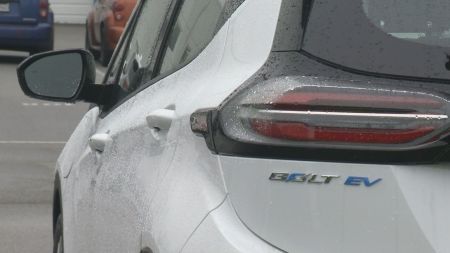B.C. Government Reconsidering Electric Vehicle Mandate as Sales Slow
The British Columbia government is facing mounting pressure regarding its ambitious electric vehicle (EV) sales targets as sales figures continue to decline. Under current legislation, 26% of new light-duty vehicles sold in B.C. must be zero-emission by 2026, with this figure set to rise to 90% by 2030 and 100% by 2035.

While B.C. has been a Canadian leader in EV adoption, with 24% of new vehicle buyers choosing electric models in 2024, recent data shows a concerning trend. After both federal and provincial EV subsidies were phased out earlier this year, sales dropped significantly. Blair Qualey, president and CEO of the New Car Dealers’ Association of B.C., noted that the adoption rate fell from 19% in the first quarter to 15% in April and remained flat in May.
“The math is just not there to achieve the 26% target in 2026,” Qualey said. “The 2030 number is virtually impossible.” The industry is calling for a pause on the current targets to allow for further discussion between manufacturers and the government about achievable goals.

Concerns about the province’s electricity infrastructure have also been raised. Barry Penner, chair of the Energy Futures Institute, highlighted that achieving 100% electric vehicle adoption by 2035 would require significant additional power generation, equivalent to two more Site C dams. Currently, B.C. has been importing 20-25% of its electricity needs from outside the province.
Consumer behavior is also shifting towards plug-in hybrids, which are generally cheaper but often don’t qualify for government rebates. Penner noted that internal government polling shows cost as the primary barrier to EV adoption, with almost 60% of British Columbians citing it as their main concern.

A technical review of B.C.’s Zero-Emission Vehicles Act obtained by Global News suggests the government is open to adjusting the program. Proposed changes include revising the 2030 zero-emission sales targets, modifying compliance ratios for different types of zero-emission vehicles, and adjusting range requirements to qualify for credits.
While the province has paused EV subsidies, the review hints at exploring “new initiative agreement pathways to support affordability for consumers.” B.C. has been upgrading its EV infrastructure, with BC Hydro installing around 600 fast chargers across the province.
The government is also conducting a comprehensive review of its CleanBC program. Industry stakeholders believe that reinstating rebates could help stimulate sales, but argue that even with such measures, the current targets remain overly ambitious.



